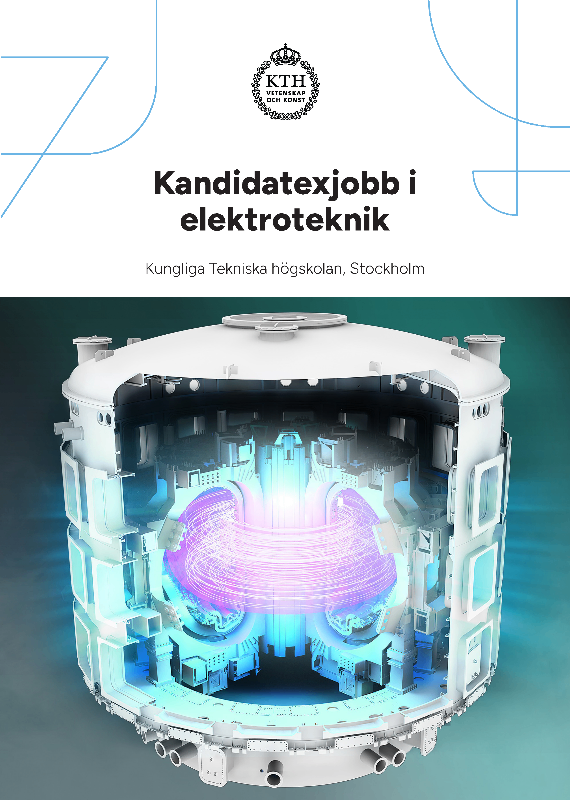Registrerade studenter hittar information för genomförande av kursen i kursrummet i Canvas. En länk till kursrummet finns under fliken Studier i Personliga menyn vid kursstart.
VALBARA KANADIDATEXJOBBSPROJEKT VÅREN 2026
Alla projekt som erbjuds vårterminen 2026 inom kursen EF112X finns samlade i följande pdf-fil:
Kandidatexjobb projektvalskatalog VT2026
Kolla igenom projektbeskrivningarna i denna katalog noggrant. I valet markerar ni vilka projekt ni helst vill göra. Obs, inom ramen av denna kurs kan man inte "skräddarsy" sitt eget projekt tillsammans med en handledare. Man måste välja ett av de tillgängliga projekten som finns beskrivna.
Även fysiker, teknisk matematik, farkost- och energi- och miljöstudenter är välkomna att välja kandidatexjobbsprojekt inom denna kurs.
VAL AV PROJEKTET
När sker valet?
Valet av kandidatexjobbet görs 1-15 november. Resultatet påverkas ej av när du väljer under valperioden.
Projektgruppen
Kandidatexjobbsprojektet utförs i grupper om två studenter. Om du inte lyckas hitta en projektpartner, tilldelas du en partner med liknande projektönskemål som du. Obs, du har dock större chans att få ett högprioriterad projekt ifall du anmäler dig tillsammans med en projektpartner, då det är inte alltid lätt för kursorganisatorn att hitta en projektpartner med liknande önskemål till dig.
Gör ditt val
Läs igenom projektbeskrivningarna, välj de sju mest intressanta projekten. Du kommer kunna ange din prioriteringsordning när du väljer (prio 1= det projektet du helst vill ha).
Om du redan har hittat en projektpartner, fyll i bådas namn, e-mail och program i samma anmälan. Gör endast en anmälan per grupp. Om du inte har en projektpartner än, anmäl dig som en en-personsgrupp (du kommer sedan tilldelas en projektpartner).
Klicka här för att anmäla dina val (öppet till 15 november 2025):
KEX-Projektvalsida
Ingen automatiskt bekräftelse skickas ut i samband med internetvalet! Valresultatet mailas ut till alla som har anmält sig i mitten av december 2025.
Lycka till!
Anita Kullen
